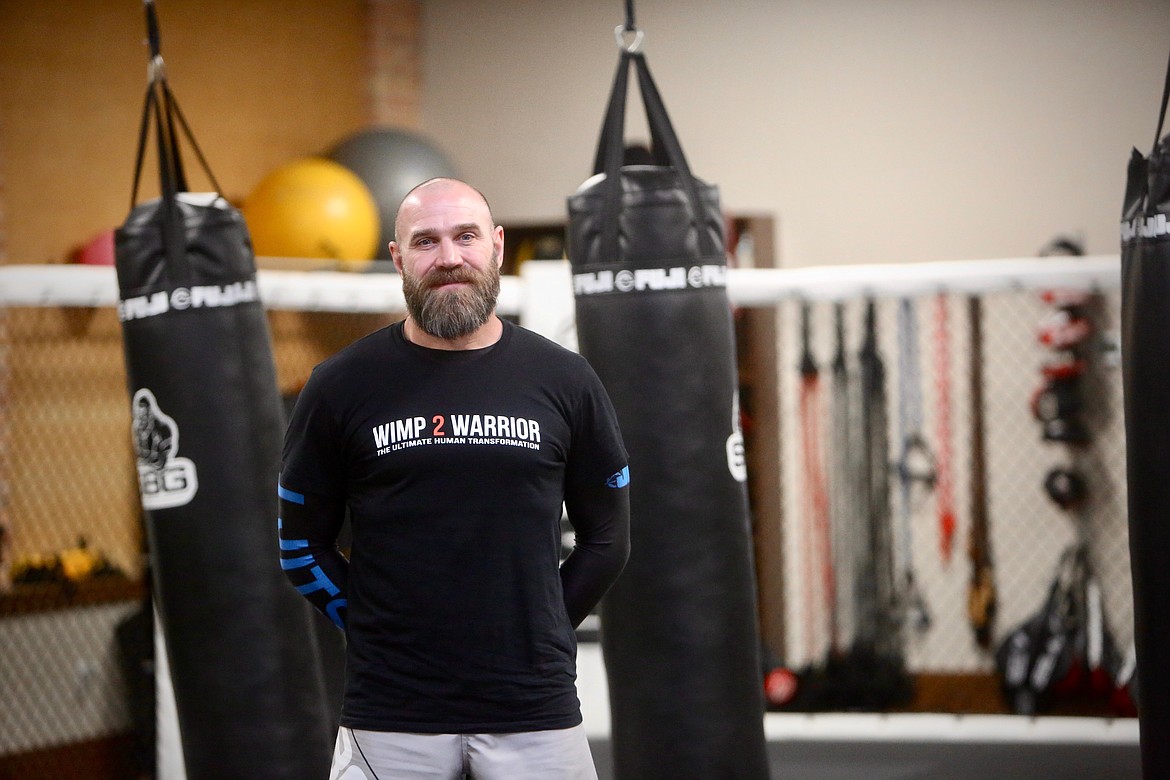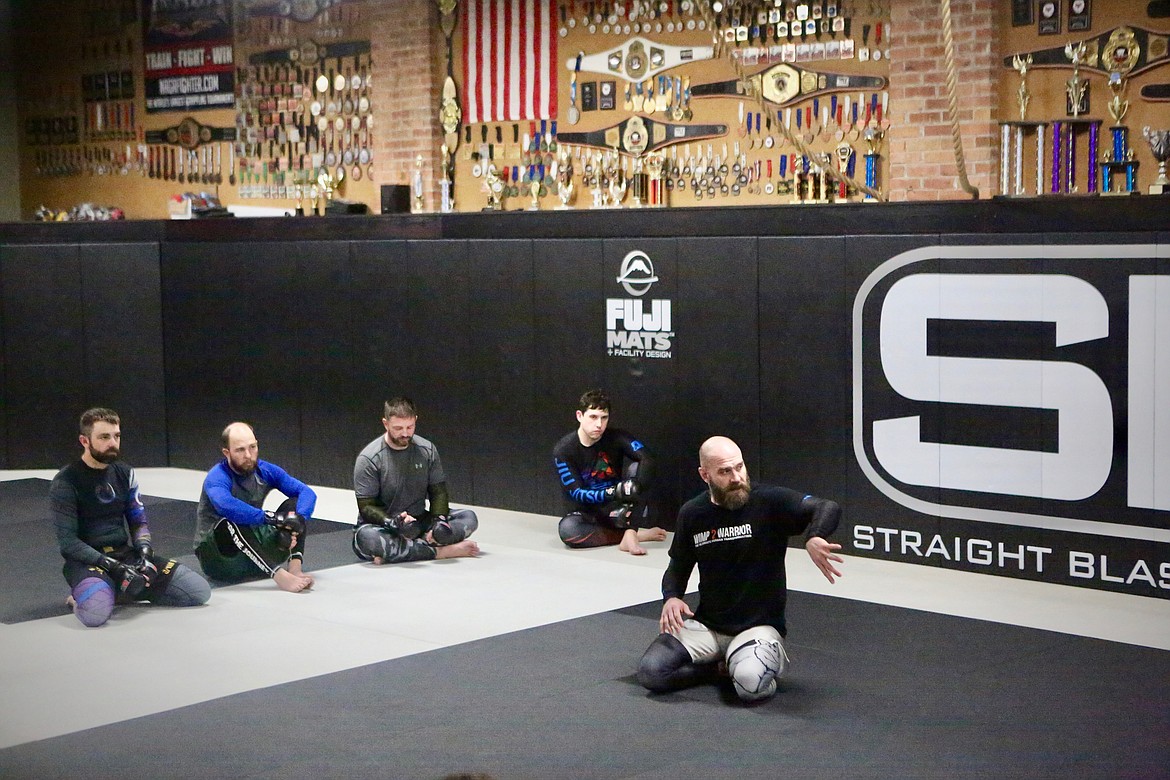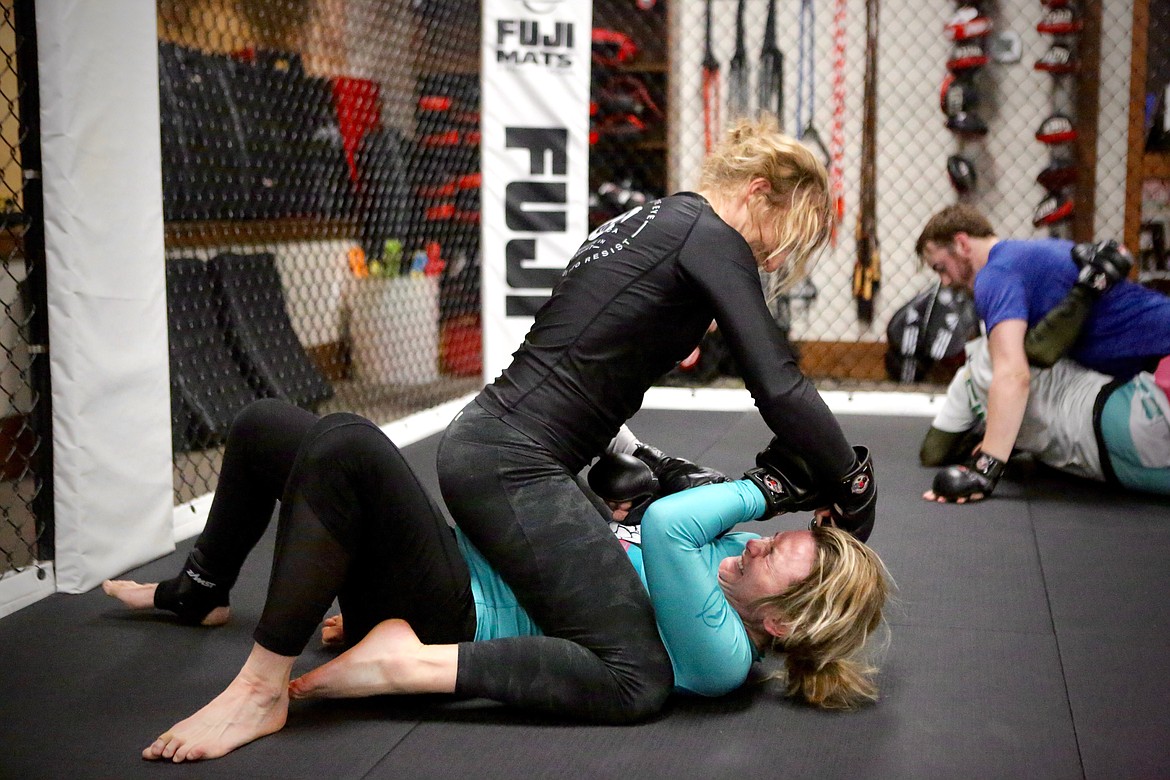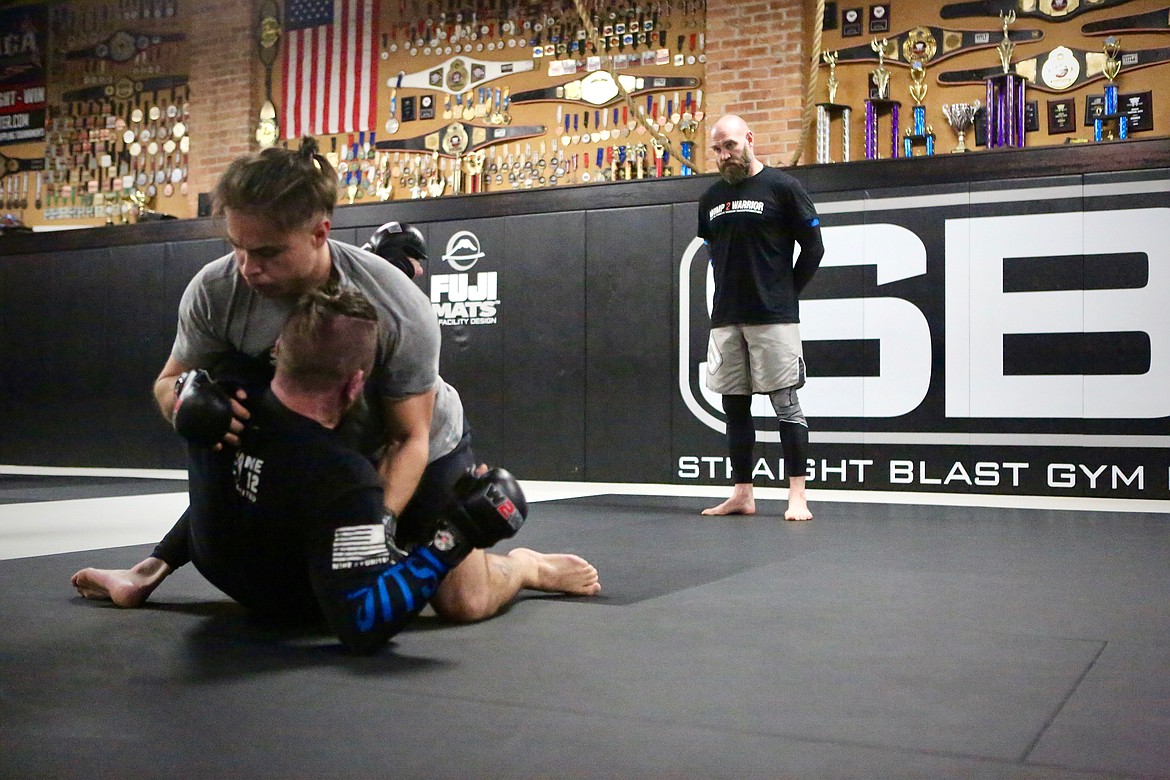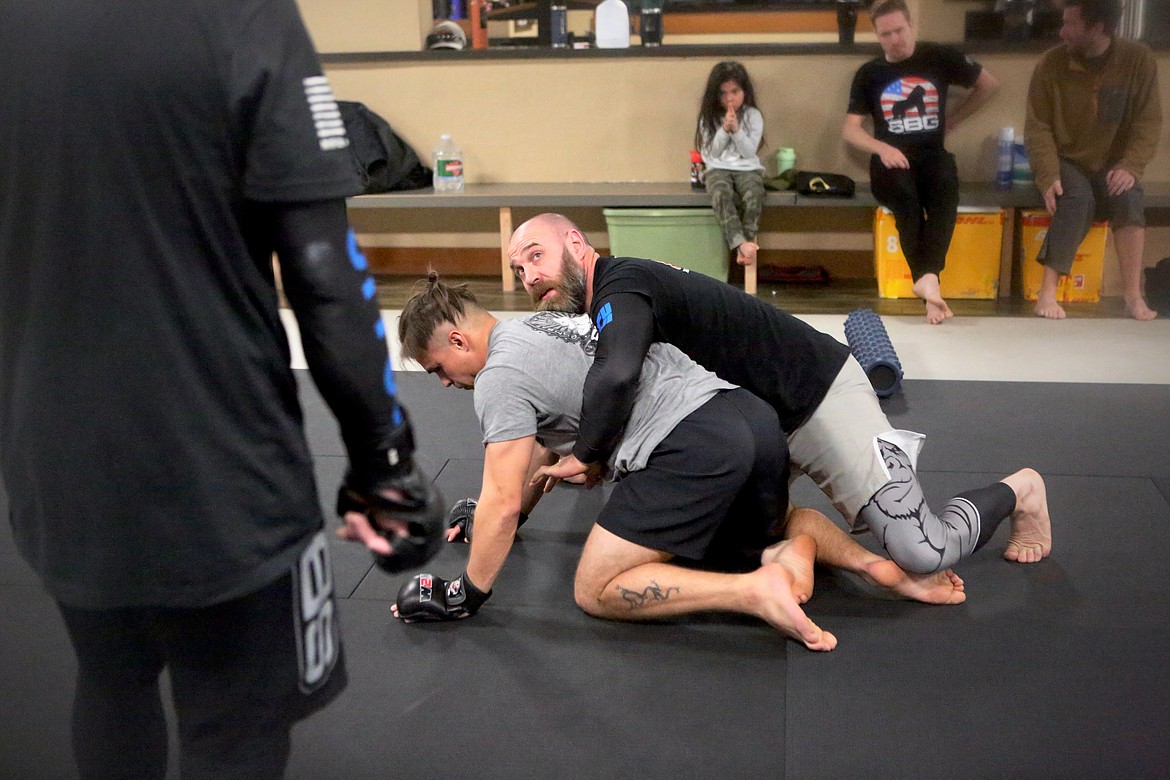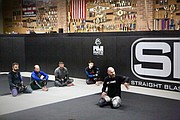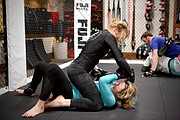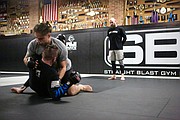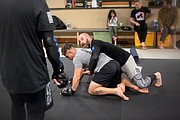Remade on the mat
Cody Bessette wasn’t in fighting shape when he was first introduced to the martial art of Brazilian jiu-jitsu. After grueling 100-hour work weeks in an Alaskan oil field, he liked to indulge in his off time. As soon as he and his co-workers departed their dry work camp, the party was on. He lived a “work hard, play hard” lifestyle, but it wasn’t taking him where he truly needed to be.
One day, he spotted a few people grappling at a local rec center near the oilfield. They invited him in and introduced Bessette to the sport that would become the cornerstone of his existence; the sport that would change everything — Brazilian jiu-jitsu. Jiu-jitsu is a self-defense martial art, where participants use a combination of joint locks and holds to force their opponents into submission. Practitioners are ranked based on skill, indicated by colored belts ranging from a beginner’s white belt to the highest rank of black belt.
This Friday, March 26, Bessette will be awarded the black belt — an achievement that takes many students of the art 10 or more years to achieve.
But Bessette is far from your average grappler.
“From day one I was hooked,” Bessette said. “I dove in head first. I was training nearly every day of the week, and sometimes two days a week.”
Within the first nine months of his practice, Bessette shed 50 pounds. And out of a desire to fuel his body for the sport, his habits changed too. He began eating healthier, getting better sleep and made the difficult choice to cut out drinking for good.
“Alcohol was a big deal for me working in Alaska,” he noted.
He also sought help from a professional and through cognitive behavioral therapy was able to gain a handle on the whys behind his behaviors, setting himself up to make better choices in the long run.
“I really took a step back and took a look at who I was surrounding myself with,” he said. “I could go hang out with my boys or I could come train. Well, I would come train.”
The catalyst behind all of these positive changes was jiu-jitsu. The mental fortitude that he forged on the mat at Straight Blast Gym was translating in a big way to his life outside the gym.
“I replaced all of my bad habits with jiu-jitsu,” Bessette said. “I progressed pretty quickly...it became a cornerstone of my life. It was really what I thought about almost 24/7.”
While initially he never set out to compete, three months into his training, he found himself on the competition floor. Over the years, Bessette’s desire to compete continued to grow. He tested his prowess on the mat at competitions in California, Idaho, Washington and eventually, the World Jiu-Jitsu Championships in Las Vegas where he made it all the way to the blue belt quarterfinals.
“It’s a good metric for an individual to understand where they are in their journey,” Bessette explained.
As his skills progressed, Bessette began coaching at Straight Blast Gym’s Kalispell location and soon introduced his children to the sport.
“It was so impactful on our family that my wife and I were talking about getting a 12 passenger van to transport kids from Bigfork to the Kalispell location,” he said. “We were making the trip twice a week for our kids anyways.”
But instead, Bessette took that idea one step further — instead of organizing transportation to Kalispell, he thought, why not open an SBG location right there in Bigfork? Money, however, was the limiting factor. But word got out in the local jiu-jitsu community and before long, an investor offered to make Bessette a deal.
On Sept. 18, 2017, Bessette opened the doors to SBG Bigfork, allowing him to quit his job in Alaska and make Montana his home full-time.
“Jiu-jitsu can help anybody, I truly believe that. And it starts with the environment, it starts with the culture,” he said.
The community-focused culture is where Bessette thrived. It’s where he has made lasting relationships based on mutual respect and trust; mainstay tenants of the sport itself.
“In a sense, jiu-jitsu is the ultimate control of another human being. I can control you to the point where you give up or I can submit you,” Bessette said.
Practitioners can tap out of an uncomfortable hold to avoid injury and trust is a key component in that exchange.
“Tapping out is a beautiful thing for us because we can actually go full force and somebody catches me in a choke hold, rather than going to sleep I tap and we can go again,” he explained.
But when it comes to earning a black belt, it’s not about dominating everyone on the mat. When coaches look to promote a student, Bessette said they also consider how that person treats others; including students who rank below them. Do they use their roll time as a teaching opportunity for that newbie or do they smash that person into the ground?
To earn a black belt in jiu-jitsu you must also earn one in life, Bessette said. The prestigious rank also extends beyond the individual.
“That black belt is not achieved by me … Every single person, whether that was a competitor out of state or a training partner in this gym, anybody that I slapped hands with and bumped fists with on the mat, that’s their black belt,” Bessette said. “Because without them, I have nothing.”
Members of the SBG tribe will be invited — not just to witness, but to participate — in Bessette’s upcoming black belt celebration. When a student or coach is promoted at SBG, the gym holds gatherings called Ironmans where students line up by rank and each must roll with the individual being promoted. It’s not a pass-fail test — the nominee has already earned the rank — but rather a means of celebrating the achievement as part of a community.
“You don’t get good at jiu-jitsu by yourself. It’s an opportunity for each and every person to roll with this person to submission,” Bessette said. “I’ve seen them go 45 minutes and I believe my brown belt one went just over two hours.”
He hopes to be greeted with a crowd on Friday.
He wants to be challenged.
He wants to earn that title.
“I want to struggle. I want it to be hard. I don’t want easy outs — I want people to submit me and I want to get up and hug everybody afterwards,” Bessette said. “I’m an emotional person. I’m sure there will be a lot of tears, but it won’t be because of pain — it’ll be because of excitement and the journey.”

